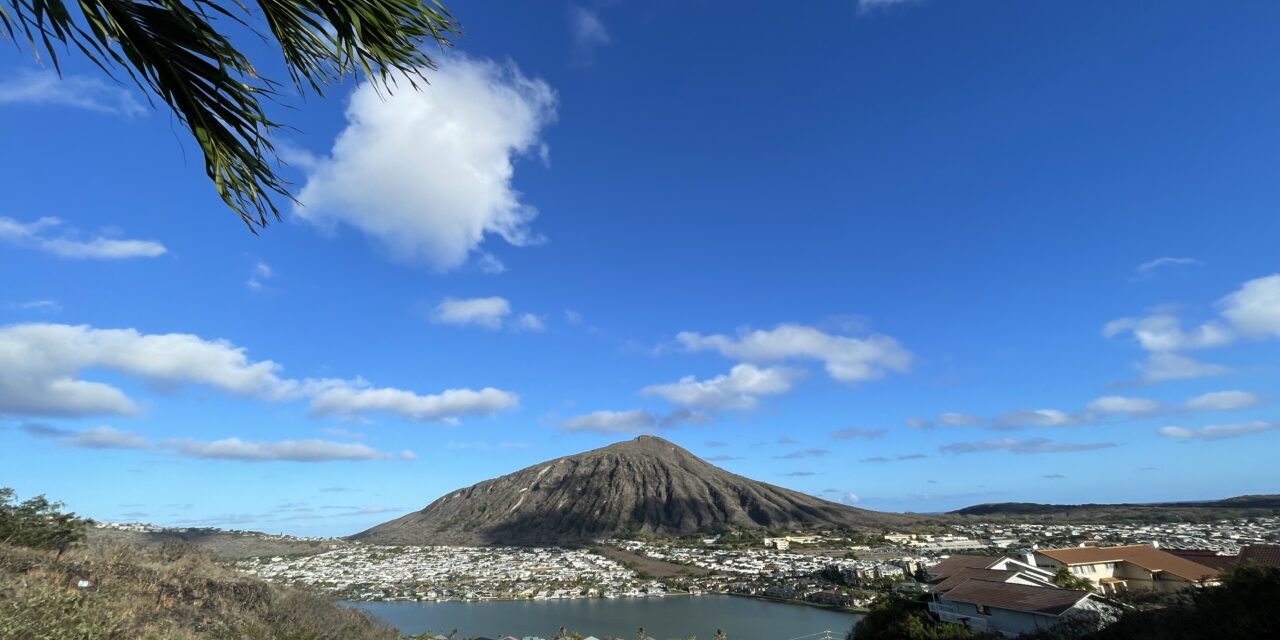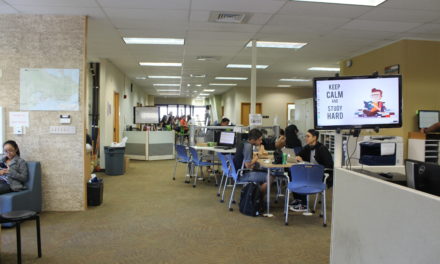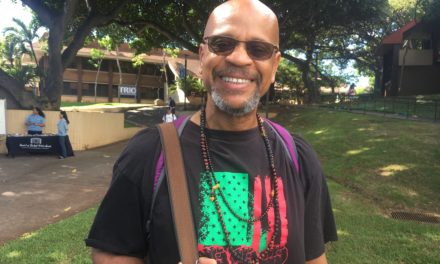Maunalua, Oʻahu is where I was raised and where I imagined settling down in the future. However, with the high cost of living in Hawaiʻi, I’m not sure if I’ll be able to afford that. (Photo by Cameron Enomoto)
By Cameron Enomoto | Staff Writer
We’ve all heard the phrase “priced out of paradise,” and as the median cost of living in the Aloha State continues to rise, this phrase may become a reality for many people who are looking for permanent housing in Hawaiʻi.
A recent article by KHON2 stated that interest rates for home mortgages in Hawaiʻi and nationally are the highest they’ve been in 20 years. While it is expected to decrease, the cost of a mortgage loan is just not feasible given that the average home on Oʻahu is approximately $1.05 million, based on the September 2023 Oʻahu Real Estate Report.
As a teenager, I pictured myself living in Maunalua, Oʻahu in the future and settling down in the same neighborhood I grew up in. Now, as a young adult, I’m worried that I won’t have a livable salary that allows me to stay in Hawaiʻi. I anticipate having to take out loans as a graduate student and auto loans to pay for a car since public transportation is an unreliable means of getting around. Adding a mortgage loan on top of those is ridiculous.
I entered KCC as a first-year student in Fall 2021, and I have since completed my AA in Secondary Education before deciding to return as a social work major. The reason I decided to switch majors is due to the fact that teaching is one of the lowest-paid professions with an average salary of $60,000. While social workers aren’t known to be among the professions with top earners, I’ll be less likely to have to look for a second job to make ends meet.
Ideally, I’d be able to make a living off one job alone and be able to buy a home of my own here. For a single person, an estimate of a yearly salary between $70,000 to $100,000 is necessary to live comfortably in Hawaiʻi. For a family, that estimate can be anywhere from $120,000 to $200,000.
I already know that I never want to live anywhere except Hawaiʻi. As a Native Hawaiian, I want to spend the rest of my life in my homeland to stay connected to my culture, family, and Hawaiian identity. If I have a family of my own someday, I would also want to raise my kids here and share with them the same things I experienced when I was their age.
According to data from the 2020 Census, 46.7% of Native Hawaiians live in Hawaiʻi, meaning that the majority of Hawaiians reside outside of the state. This percentage is a clear example of what being priced out of paradise looks like.
Hawaiʻi certainly isn’t Hawaiʻi without Hawaiians, though continuing to live in the pae ʻāina [group of islands] is no longer reasonable for a large number of people. Unfortunately, this is the reality of Hawaiʻi today. Instead of spending my early 20s being excited about my future career and journey into adulthood, I’m worried that I won’t even be able to afford the cost of living in my home.






